Ever see a cute animal online and think, “I need one of those!”? You’re definitely not alone. We all get dazzled by those adorable faces, fluffy tails, and charming antics. But behind every viral video of a cute piglet or a snoozing raccoon is a real-life pet with very specific needs. These pets might seem like fun companions, but often, the reality doesn’t live up to the fantasy. Here’s a list of 13 cute pets that everyone seems to want—until they actually have one.
1. Parrots: Beautiful but Boisterous
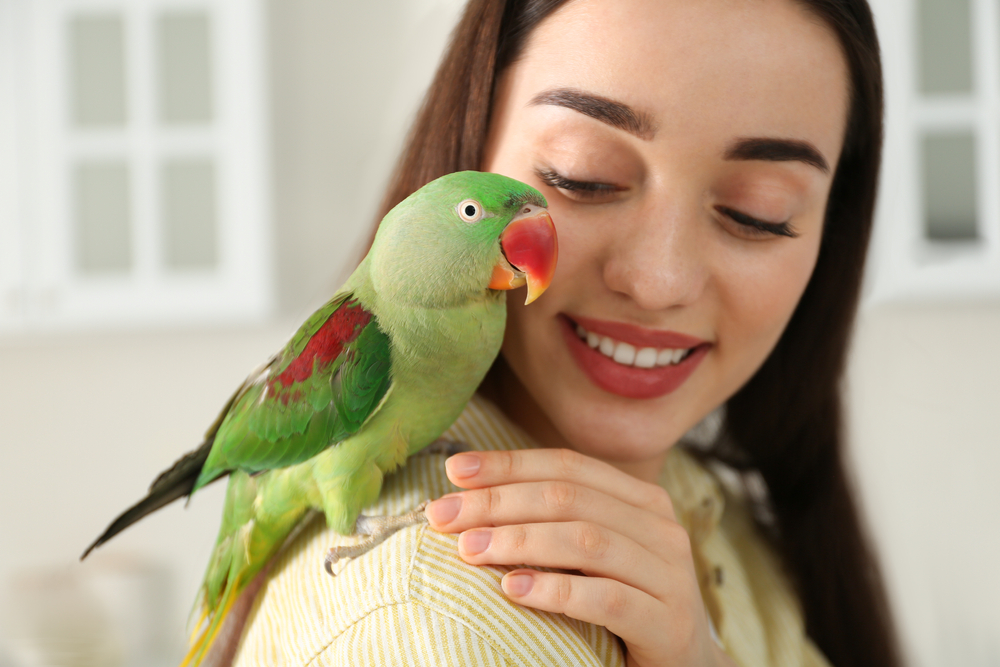
Parrots are known for their vibrant feathers and remarkable ability to mimic human speech, making them an attractive pet choice for many. However, owning a parrot is akin to having a perpetual two-year-old. They demand constant attention and can be very vocal, often squawking loudly for long periods. Parrots are highly intelligent creatures that require mental stimulation and social interaction to prevent boredom and develop behavioral issues, such as feather plucking or aggression.
Moreover, parrots have long lifespans, often living for 30 to 70 years, meaning they could outlive their owners. Their complex dietary needs demand a careful balance of fruits, vegetables, nuts, and specialized pellets. Parrots also need space to spread their wings, so a small cage is not suitable for these birds. They are sensitive to their environment and can be affected by smoke, fumes, and temperature fluctuations. Taking care of a parrot is a lifelong commitment that many are not prepared for.
2. Teacup Pigs

Teacup pigs are irresistibly cute, piggy versions of a dream pet. Their small size and endearing snorts can make anyone swoon. However, the truth about these miniature pigs is that they often outgrow their “teacup” size. According to the American Mini Pig Association, many teacup pigs end up weighing between 100 and 200 pounds once they reach adulthood. This not-so-mini size requires ample space, a specialized diet, and careful attention to their health needs.
Moreover, teacup pigs are highly intelligent and social animals needing mental stimulation and companionship. They can become destructive if bored or lonely, chewing on furniture and rooting through your belongings. Not to mention, they require regular veterinary care from specialists familiar with pigs. This can be a pricey and time-consuming endeavor. So, while they might look cute on Instagram, they bring a heap of unique challenges that aren’t always evident at first glance.
3. Hedgehogs with Attitude
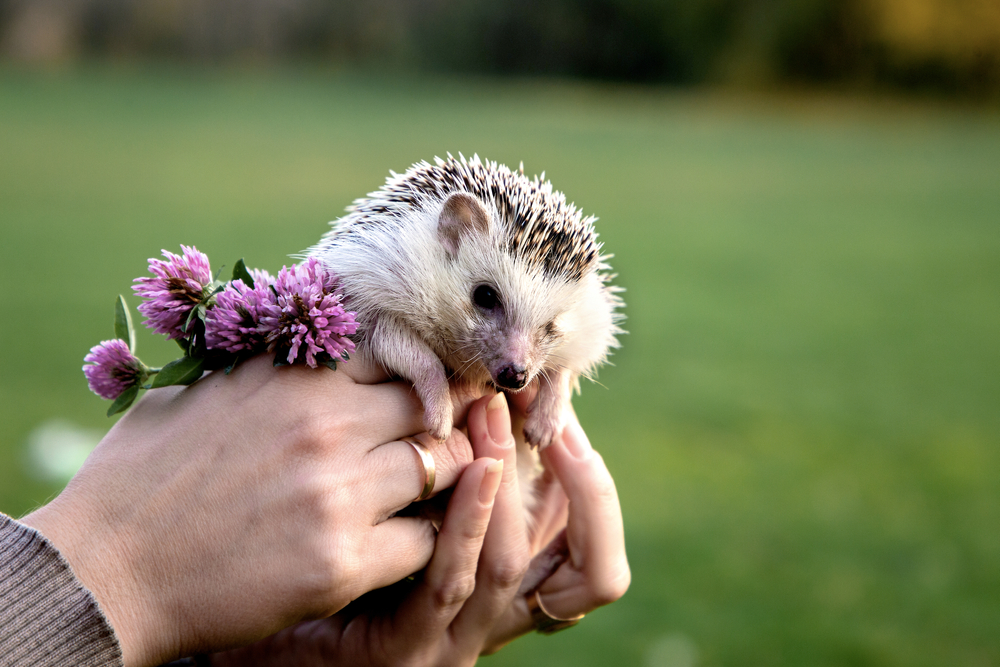
Hedgehogs have become increasingly popular, largely due to their adorable, spiny little bodies and curious personalities. These nocturnal creatures love to explore, and they make for intriguing, albeit slightly prickly, companions. However, raising a hedgehog is not as easy as it appears. According to the Hedgehog Welfare Society, these creatures can be prone to a host of health issues, including obesity, dental disease, and even cancer.
Aside from health issues, hedgehogs need a specific habitat with the right temperature conditions and enrichment activities. They can be quite shy and might not warm up to human interaction immediately, requiring patience and gentle handling. Plus, they are nocturnal, meaning they’re most active when you’re likely winding down for the night. Their sleep schedule can lead to challenges in bonding and interacting during daylight hours. Despite their tiny size, hedgehogs demand a big commitment.
4. Ferrets: Mischief Makers Extraordinaire
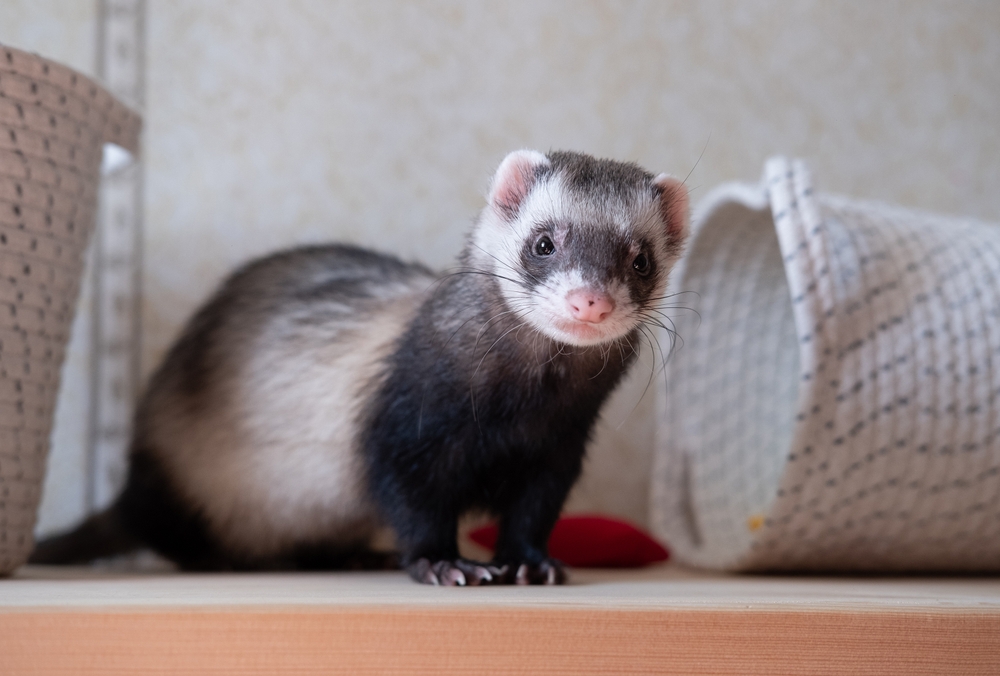
Ferrets are delightful little creatures that captivate pet owners with their playful antics and curious nature. They’re known for their long bodies and seemingly endless energy, making them entertaining housemates. However, according to [The American Ferret Association](https://www.ferret.org), they require a lot more care and attention than many people realize. Ferrets need a specialized diet rich in protein and fat, and they are prone to certain diseases like adrenal gland disease and insulinoma.
Moreover, ferrets have a natural musky odor that many find unpleasant, even after descenting. They also love to explore, often squeezing into tiny spaces, which can lead to them getting lost or hurt. Ferrets need plenty of mental stimulation and interactive playtime, often more than busy owners can provide. They are not the kind of pet you can leave in a cage all day, as they require several hours of supervised play each day. Their lively, mischievous nature is endearing but can be a handful for the unprepared.
5. Sugar Gliders: Cute, but Complex

Sugar gliders are pocket-sized marsupials with big eyes and an uncanny ability to glide through the air. Their small size and flying capabilities make them seem like the ultimate exotic pet. However, sugar gliders are not for the faint-hearted. They are incredibly social creatures requiring a significant amount of attention and companionship, ideally from other sugar gliders. Without this social interaction, they can become depressed and exhibit self-harming behaviors.
These little creatures are also nocturnal, which means their playtime often coincides with your sleep schedule. Setting up the right environment for them can be challenging, as they need a spacious enclosure filled with toys, branches, and pouches for hiding. Furthermore, sugar gliders have a complex diet that must be carefully balanced with fruits, vegetables, and proteins. Their dietary needs can be overwhelming for new owners who are not prepared for the commitment.
6. Rabbits: More than Just Fluffy Tails
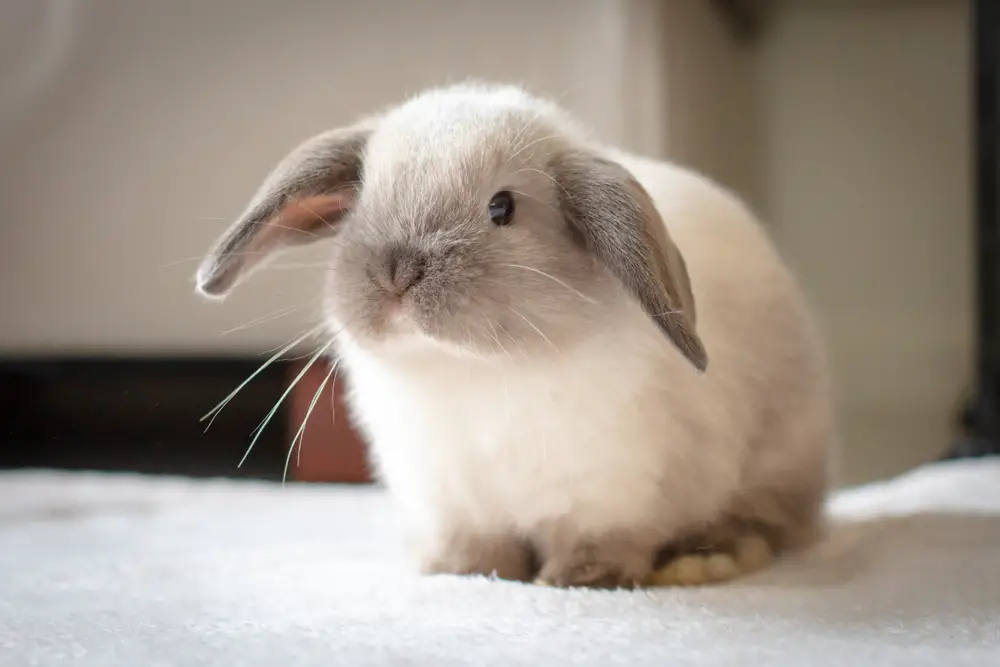
Rabbits might seem like the perfect low-maintenance pet due to their quiet nature and fluffy appearance. They are often marketed as great starter pets for children. However, rabbits are complex animals that require a lot of care and attention. They need a spacious and secure living environment, regular exercise, and a diet rich in hay, fresh vegetables, and special pellets. Rabbits are also prone to dental problems and other health issues that require regular veterinary checkups.
Additionally, rabbits are social creatures that thrive on interaction and can become bored or lonely if left alone for extended periods. They also have a tendency to chew on anything they can get their teeth into, including electrical cords and furniture, which makes rabbit-proofing your home essential. Cleaning up after them can be a full-time job, as they produce a lot of waste that needs to be managed daily. Owning a rabbit is a long-term commitment that shouldn’t be taken lightly.
7. Turtles: Slow and Steady, but Surprisingly Complex
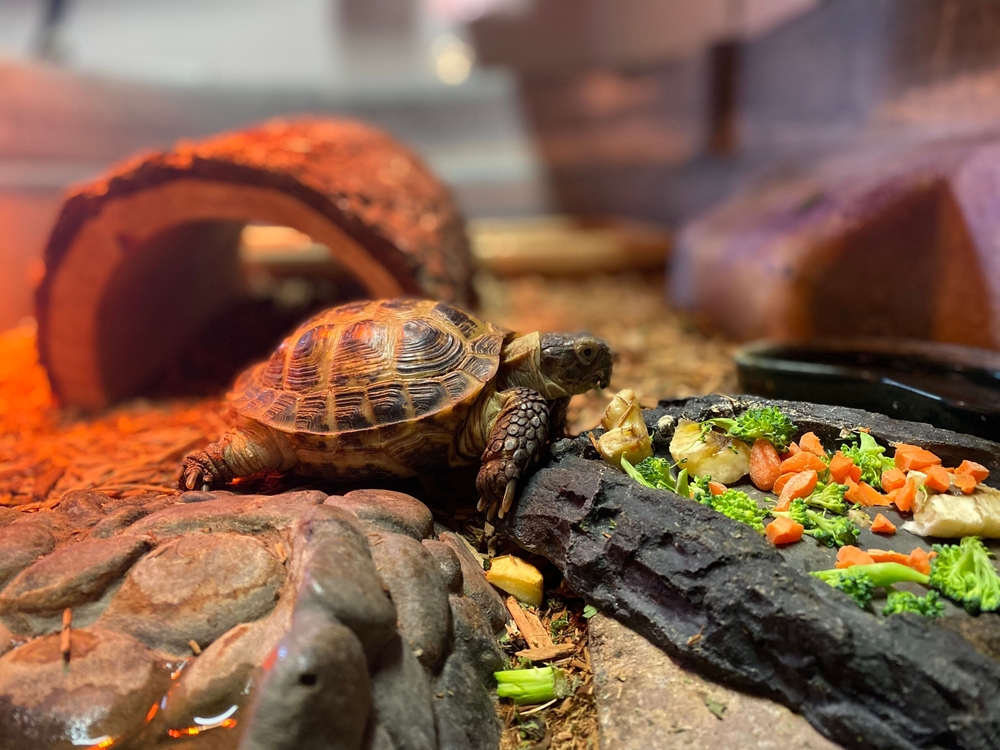
Turtles are frequently considered low-maintenance pets because of their slow movements and perceived simplicity. Many people are drawn to their unique appearance and the idea of having a pet that doesn’t need constant attention. However, turtles can live for decades, with some species living over 50 years, making them a long-term commitment. They require a carefully controlled environment with proper lighting, temperature, and humidity levels, which can be challenging to maintain.
Additionally, turtles have specific dietary requirements that can vary depending on the species, needing a mix of greens, insects, and commercial turtle pellets. Their tanks must be kept clean to prevent disease, and they can also carry salmonella, posing a risk to young children and those with weakened immune systems. Turtles are not as interactive as other pets, and their slow nature can lead to them being forgotten or neglected. They require careful consideration and preparation before becoming a pet.
8. Exotic Fish: More than Just a Pretty Tank
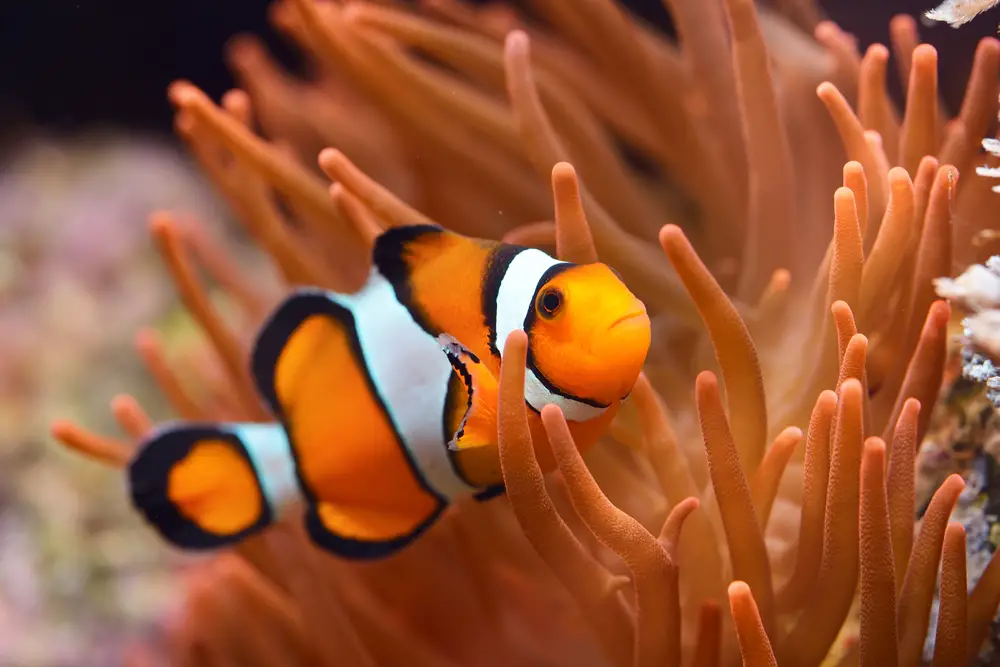
Exotic fish can transform any room into a beautiful, tranquil space with their vibrant colors and graceful movements. However, maintaining a healthy aquarium is more complicated than simply adding water and fish. Exotic fish often require a specific tank size, water conditions, temperature, and filtration system to thrive. Regular maintenance, including water changes and monitoring pH levels, is crucial to prevent illness and maintain a healthy environment for your fish.
Furthermore, exotic fish have unique dietary needs that must be met to keep them healthy and vibrant. These fish can be expensive, as can the equipment and chemicals needed to maintain their habitat. Compatibility between different fish species is also important, as some fish may become aggressive and harm others. An aquarium is a delicate ecosystem that demands time, knowledge, and commitment to ensure your exotic fish live a long and healthy life.
9. Chinchillas: Soft, but Sensitive
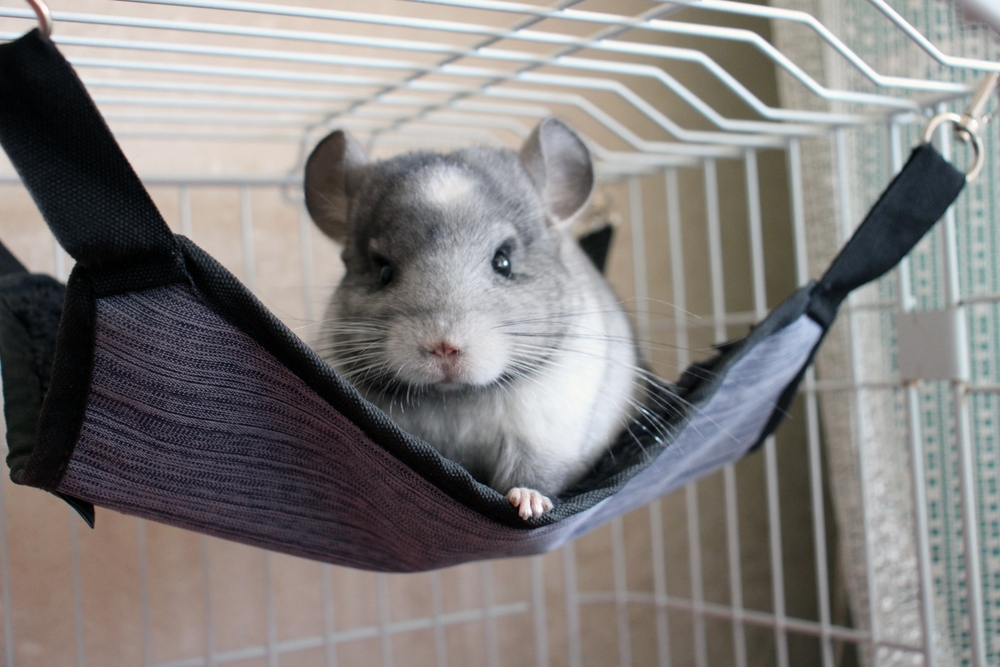
Chinchillas are known for their incredibly soft fur and playful nature, making them an attractive pet choice. However, owning a chinchilla is not as straightforward as it might seem. They are sensitive to temperature, requiring a cool environment to prevent overheating, which can be fatal. Chinchillas also need large cages with multiple levels to accommodate their active lifestyle, and they require regular dust baths to maintain their fur.
Diet is another crucial aspect, as chinchillas need a balanced diet of hay, pellets, and occasional treats. They are also nocturnal and may not be as active during the day, which can be disappointing for owners looking for an interactive pet. Chinchillas are social animals that can become lonely and depressed without companionship, ideally from another chinchilla. Owning a chinchilla requires an understanding of their unique needs and a commitment to provide them with a suitable environment.
10. Iguanas: Green Giants with Big Needs
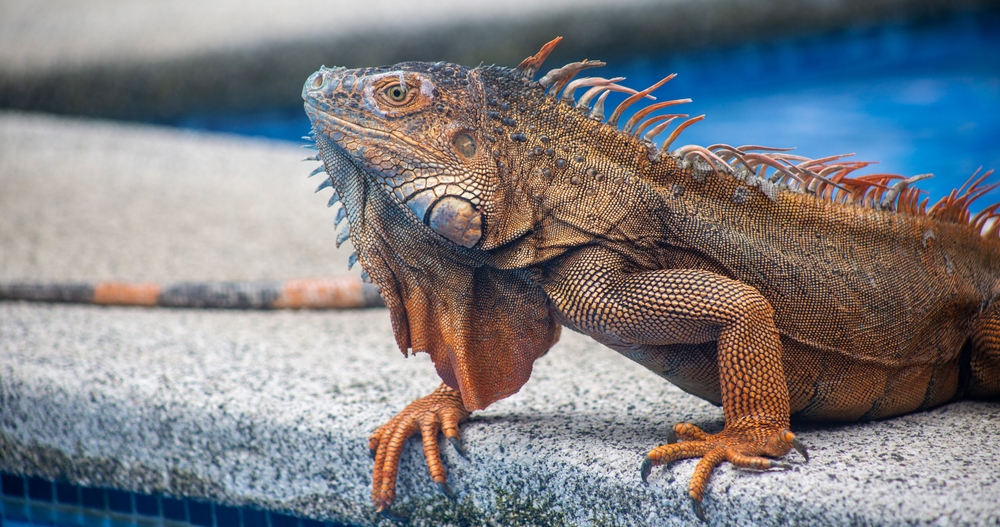
Iguanas are often seen as the quintessential exotic pet, with their impressive size and striking appearance. However, iguanas can grow much larger than most expect, sometimes reaching over six feet in length. This requires a substantial enclosure, often taking up a significant amount of space in your home. They are also highly sensitive to their environment, needing specific temperatures, humidity levels, and UV lighting to stay healthy.
Their diet is equally important, consisting mainly of fresh greens, vegetables, and occasional fruits. Iguanas can be territorial and may exhibit aggressive behavior, particularly during breeding seasons. Handling them requires care and confidence, as they can deliver a painful bite or whip with their tail if they feel threatened. Iguanas are not beginner pets and require a knowledgeable owner who can manage their complex needs and long lifespan.
11. Tarantulas: Not Your Average Cuddle Buddy
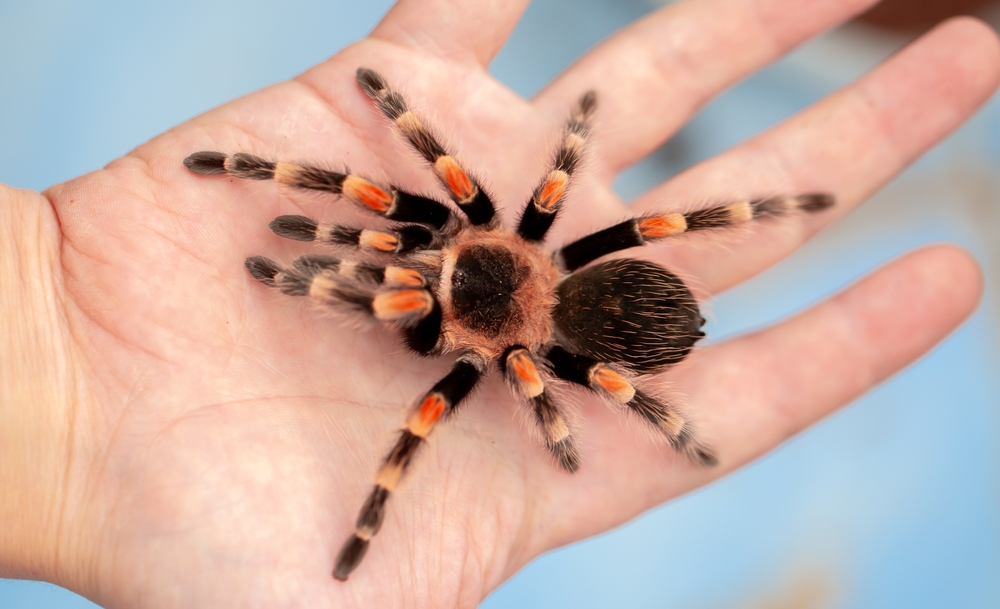
Tarantulas are intriguing pets due to their unique appearance and low-maintenance lifestyle. Many are drawn to their mysterious and slightly intimidating nature. However, they are not the right pet for everyone. Tarantulas require specific habitat conditions, including humidity and temperature control, and their enclosures must be secure to prevent escape. While they don’t need daily interaction, it’s important to handle them gently and infrequently to prevent stress.
Their diet consists of live prey, such as crickets or mealworms, which can be unsettling for some owners. Additionally, tarantulas can be venomous, and handling them carries a risk of a bite, although this is rare and usually harmless to humans. They are also fragile creatures, and a fall from even a short height can be fatal. Owning a tarantula is more about observation than interaction, requiring a unique appreciation for these eight-legged creatures.
12. Frogs: Hopping into Complicated Care
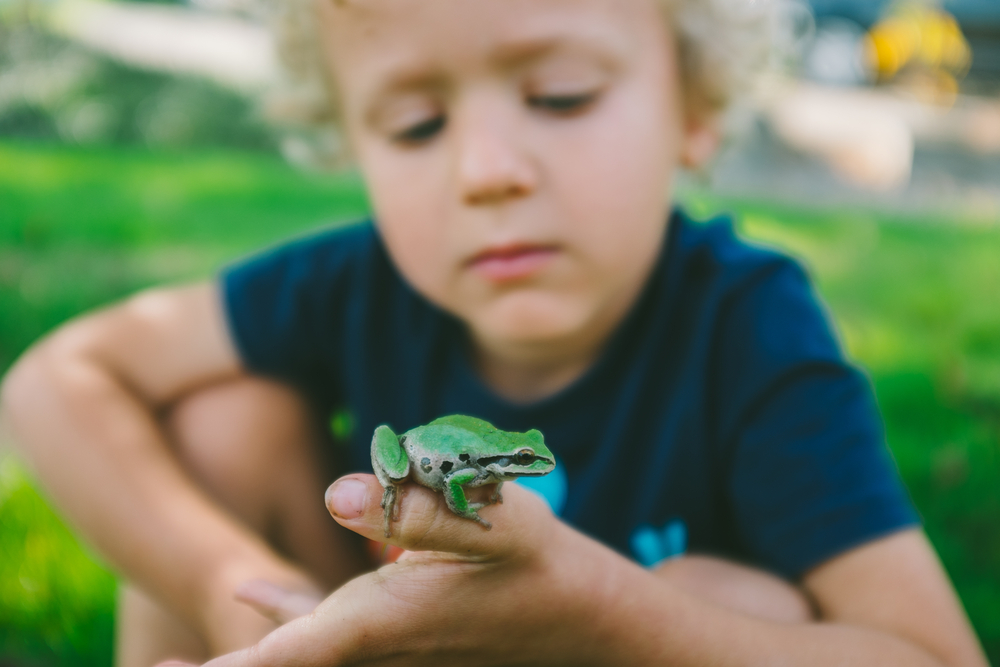
Frogs might seem like low-maintenance pets due to their small size and simple needs. However, they come with their own set of challenges. Frogs require a carefully controlled environment, as they are sensitive to changes in temperature and humidity. Their tanks need regular cleaning to prevent harmful bacteria growth and should be equipped with appropriate lighting and filtration systems.
Diet also plays a crucial role in frog care, as they often require live prey, such as insects, to thrive. Some species can be toxic if handled improperly, posing a risk to humans and other pets. Frogs are also sensitive to handling, and too much can cause stress and health issues. They are best suited for owners who enjoy observing rather than interacting with their pets and are prepared to meet their specific environmental needs.
13. Raccoons: Cute but Cunning
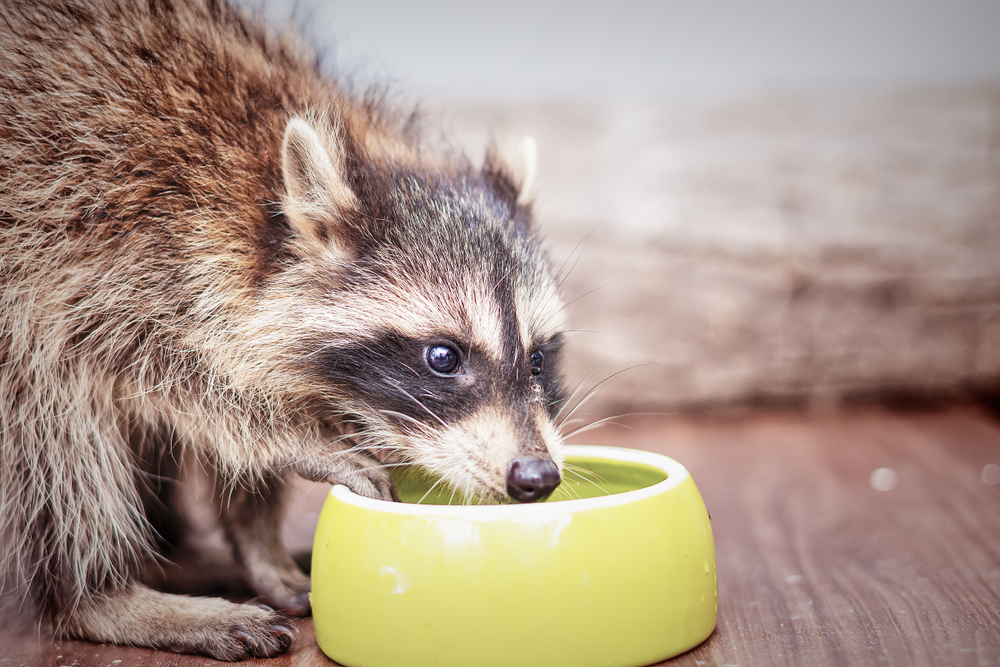
Raccoons are undeniably cute with their masked faces and dexterous paws. However, they are wild animals with complex needs that are difficult to meet in a domestic setting. Raccoons are highly intelligent and curious, often getting into everything and causing destruction in their quest to explore. They require a large, secure enclosure that simulates their natural environment, and they can be aggressive, especially during mating season.
Their diet is varied and requires careful planning to ensure they receive the proper nutrients. Raccoons are also nocturnal, meaning their activity peaks when most people are winding down for the day. Additionally, they can carry diseases such as rabies, posing a risk to humans and other pets. Keeping a raccoon as a pet is not recommended due to their specific needs and the potential dangers they pose.
